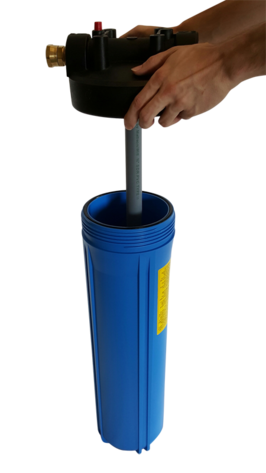In the realm of water purification, Deionized Water System stand as stalwart guardians of purity, wielding the power to transform ordinary water into a pristine elixir devoid of impurities. These systems are not merely apparatuses; they are gatekeepers ensuring the highest standards of water quality across diverse industries, from pharmaceuticals to electronics manufacturing. Let us embark on a journey to unravel the intricacies and significance of deionized water systems.
At its core, a deionized water system operates on the principle of removing ions from water, effectively purifying it from dissolved minerals and salts. This process, known as deionization or demineralization, involves passing water through specialized ion exchange resins that attract and trap ions, leaving behind exceptionally pure water in its wake. The result? Water so pure that its conductivity approaches zero, making it indispensable in applications where even the slightest impurity could wreak havoc.
In industries like pharmaceuticals and biotechnology, where precision is paramount, deionized water is the lifeblood of operations. From manufacturing medications to conducting sensitive experiments, any deviation in water quality could compromise the integrity of products or research outcomes. Deionized water ensures consistency and reliability, meeting stringent purity standards with unwavering consistency.
Moreover, in the electronics industry, where the tiniest particle can cause catastrophic failures, deionized water emerges as a savior. It serves as a critical component in cleaning electronic components during manufacturing processes, preventing contamination that could impair functionality or lifespan. Whether it's rinsing circuit boards or cooling semiconductor machinery, deionized water guarantees optimal performance and longevity.
Beyond industrial applications, deionized water finds its place in laboratories, where accuracy is non-negotiable. From conducting precise measurements to preparing chemical solutions, researchers rely on the purity of deionized water to uphold the integrity of their experiments. Any impurity could skew results or, worse, invalidate years of painstaking research, making the role of deionized water systems indispensable.
Even in everyday settings like car washes and window cleaning services, deionized water systems play a pivotal role. By removing minerals and impurities, they ensure a streak-free shine, delighting customers with impeccable results. The clarity and purity of deionized water elevate mundane tasks to a level of excellence, underscoring its versatility and indispensability across diverse domains.
However, the journey from raw water to deionized perfection is not without its challenges. Maintaining and operating deionized water systems requires expertise and diligence. From monitoring resin regeneration cycles to preventing bacterial contamination, meticulous attention to detail is essential to ensure optimal performance. Regular maintenance and quality control measures are imperative to safeguard against system failures or compromised water quality.
Moreover, the environmental impact of Deionized Water System Car Wash warrants consideration. The regeneration process of ion exchange resins consumes resources and generates waste, prompting efforts to minimize ecological footprint through recycling and sustainable practices. Balancing the need for purity with environmental responsibility is a perpetual endeavor, driving innovation in water treatment technologies.






Comments